For the most effective results, medicine, vaccines and any other treatment should be stored, applied and given according to the instructions on the label.
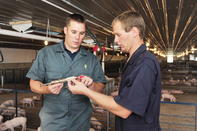
Care should also be taken to ensure pigs have been diagnosed correctly before giving any medication blindly. Not following instructions, will result in the treatment not working properly, only giving partial protection against diseases and in effect be a wastage of money.
Read the Label
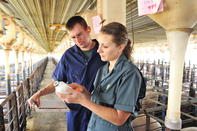
Keep It Cool
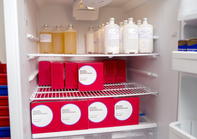
Medicines usually need to be kept at low temperatures. It should, therefore, be stored correctly from the production of the medication up until it is given to the animal on the farm.
To prevent a break in the cold chain, farmers should buy supplies from a reliable source and store the medicine in a box with ice when transporting it to the farm. On the farm, the medicine should preferably be kept in a locked fridge until usage. Medicines should never be left out in the sun, as the ultraviolet rays can negatively impact its efficiency.
Use the Correct Dosage

Giving too much or too little medicine at a time is not going to have the desired effect. An under-dosage may result in pigs not being adequately protected, whereas an over-dosage will not only drive up costs but may have negative side effects.
When diluting treatments, such as dips and sprays, special care should be taken to ensure it is being mixed as instructed on the label. The water should not only be clean but of a good quality since high levels of certain minerals and elements and water that is too acidic may render the treatment less effective.
Administer the Treatment Correctly
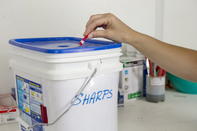
Make sure treatments are given according to the instructions on the label. The person who administers the medication should be well-trained, not only to do give the medication correctly but also to cause as little stress as possible to the pigs.
Stress not only has a negative impact on animal welfare but also renders animals more vulnerable to diseases and may result in treatments not working as well as they should. If the treatment has to be administered as an injection, the injection should be given at the correct spot on the animal's body, usually the neck.
Syringes should be replaced between each injection to avoid the spread of diseases. For oral medication, care should be taken to ensure that the animals ingest as much of the medicine as required when the treatment is administered with feed or water.
When dosing a pig directly in the mouth, the South African Pork Producers Organisation (SAPPO) recommends in its Manual for emerging Pig Farmers that farmers hold the head up and use a syringe.
The tip of the syringe should be placed into the side of the mouth under the tongue so that the medicine is swallowed and does not go down the windpipe.
Antimicrobials
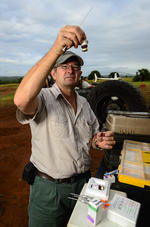
With antimicrobials specifically, the wrong usage may result in the development of antibiotic resistance, which means that the active ingredient in the treatment will become less effective even become useless in the management of certain pathogens.
Rising international concern over anti-microbial resistance has resulted in growing pressure on farmers to use antimicrobials more sparingly and only when absolutely necessary. In South Africa, specifically, certain antimicrobials are only available on prescription from a veterinarian.
By Glenneis Kriel